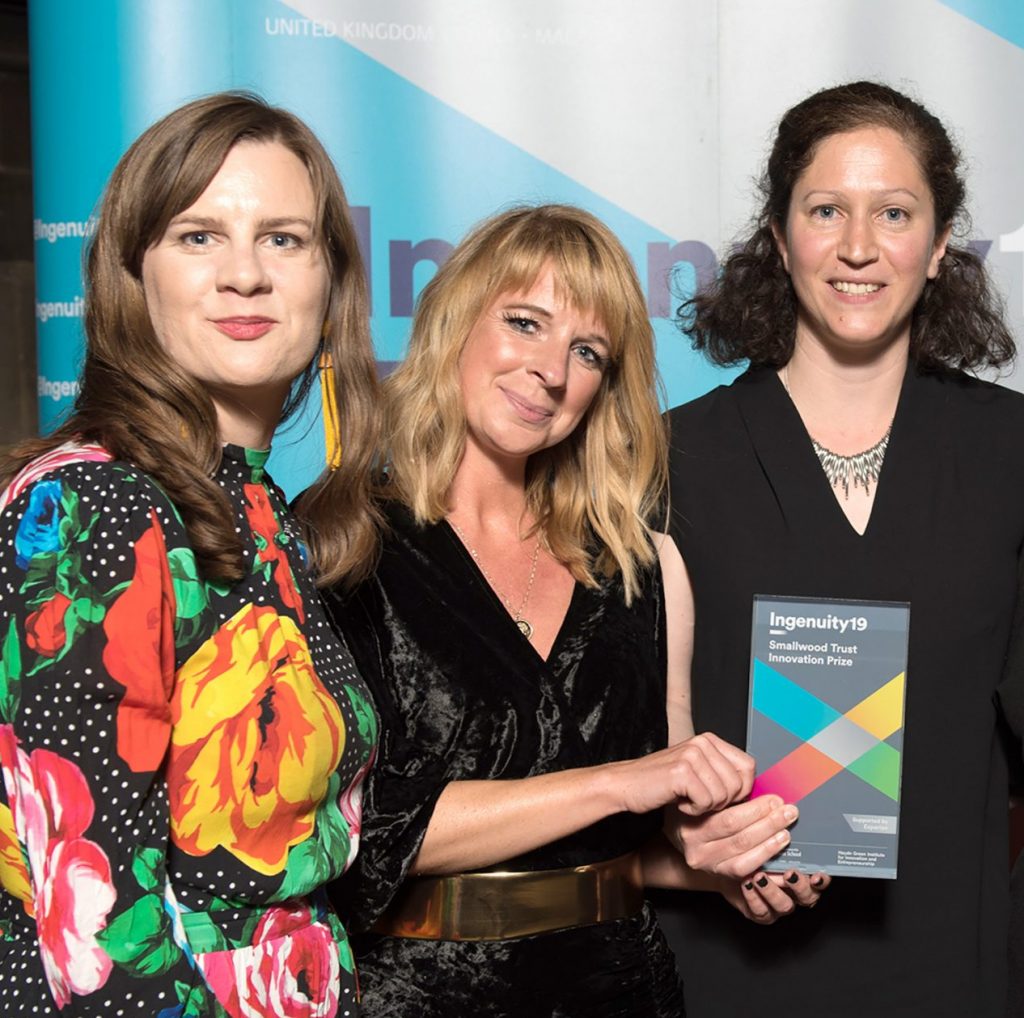
November 11, 2021, by aczjb1
Social Enterprise Day: Supporting inclusive entrepreneurship
For Social Enterprise Day, we’re shining a spotlight on some of the research undertaken at the Haydn Green Institute.
Social and Sustainable Enterprise and Inclusive Entrepreneurship and Innovation are key research strands here at HGI, and Dr Isobel O’Neil and Dr Lorna Treanor are passionate about working to bridge these themes and support inclusive entrepreneurship through their research.
Their work on inclusive entrepreneurship covers all marginalised groups, such as people who may face additional barriers to enterprise because of their age, disability, refugee status, or where they live. One aspect of this area of work relates to supporting women entrepreneurs who face additional gendered challenges to successful enterprise activity.
And their work is not limited to academia. Dr Isobel O’Neil, in addition to being an Associate Professor of Entrepreneurship, is also co-founder of a social enterprise called The My Way Project CIC. The Project supports women in their quest to pursue work and entrepreneurship pathways that work best for them. The My Way Project’s programmes use the award winning My Way toolkits which can be downloaded from HGI’s resources page.

Dr O’Neil (right) and the My Way Project with their Smallwood Trust Innovation Award at Ingenuity19
As participants in Ingenuity 2019, The My Way Project won the Smallwood Trust’s Innovation Prize which enabled the team to provide a pilot programme for women in Nottingham from low-income backgrounds. The aim of the programme was to provide women with the space and support they required to explore and pursue their employment and self-employment options. The group included women from across all age groups, from different educational and employment backgrounds as well as refugees and migrants.
“Our Smallwood Trust-funded project was a real catalyst for myself and my two co-founders – Nottingham-based entrepreneurs Debbie Clarke and Alexandra Hardwick – to take our work forward and launch the CIC,” Isobel reflected. “We were struck by how the women attending grew in confidence and how their ‘next step’ ideas crystallised over the programme. It was so powerful to see how the participants came together to encourage one another as they went on to become solo self-employed or take on a new job.”
When the pilot programme came to an end, Isobel and Lorna continued to follow the women’s progress as they endeavour to establish their enterprises and change their futures through the research project.
“This is really important research,” Lorna explained. “We live in a society where we are surrounded by stories of heroic, self-made entrepreneurs and we are encouraged to ask ourselves, why not me? However, these rags to riches success stories are not the norm. Most of the research focused upon poverty entrepreneurship is undertaken in developing economies in what is often termed the Global South, however it’s really important we understand the motivations, experiences and outcomes of entrepreneurial activity for those from low-income backgrounds in societies like ours. Only then can we inform policy to ensure all individuals are appropriately advised and supported in relation to starting and growing their enterprise.”
This one example highlights the importance of social enterprises and third sector organisations in providing support to the most disadvantaged and vulnerable in our societies, helping them cope with challenging life circumstances and make informed choices and plans to improve their futures. This appreciation of the importance of social enterprise underpins HGI’s annual Ingenuity Programme and competition which has led to the creation of over 300 social enterprises over the past five years, resulting in the University of Nottingham ranking among the highest UK Universities for supporting social enterprise start-ups in 2020 (HESA).
To find out more about the My Way Project, have a read of their impact report.
No comments yet, fill out a comment to be the first

Leave a Reply